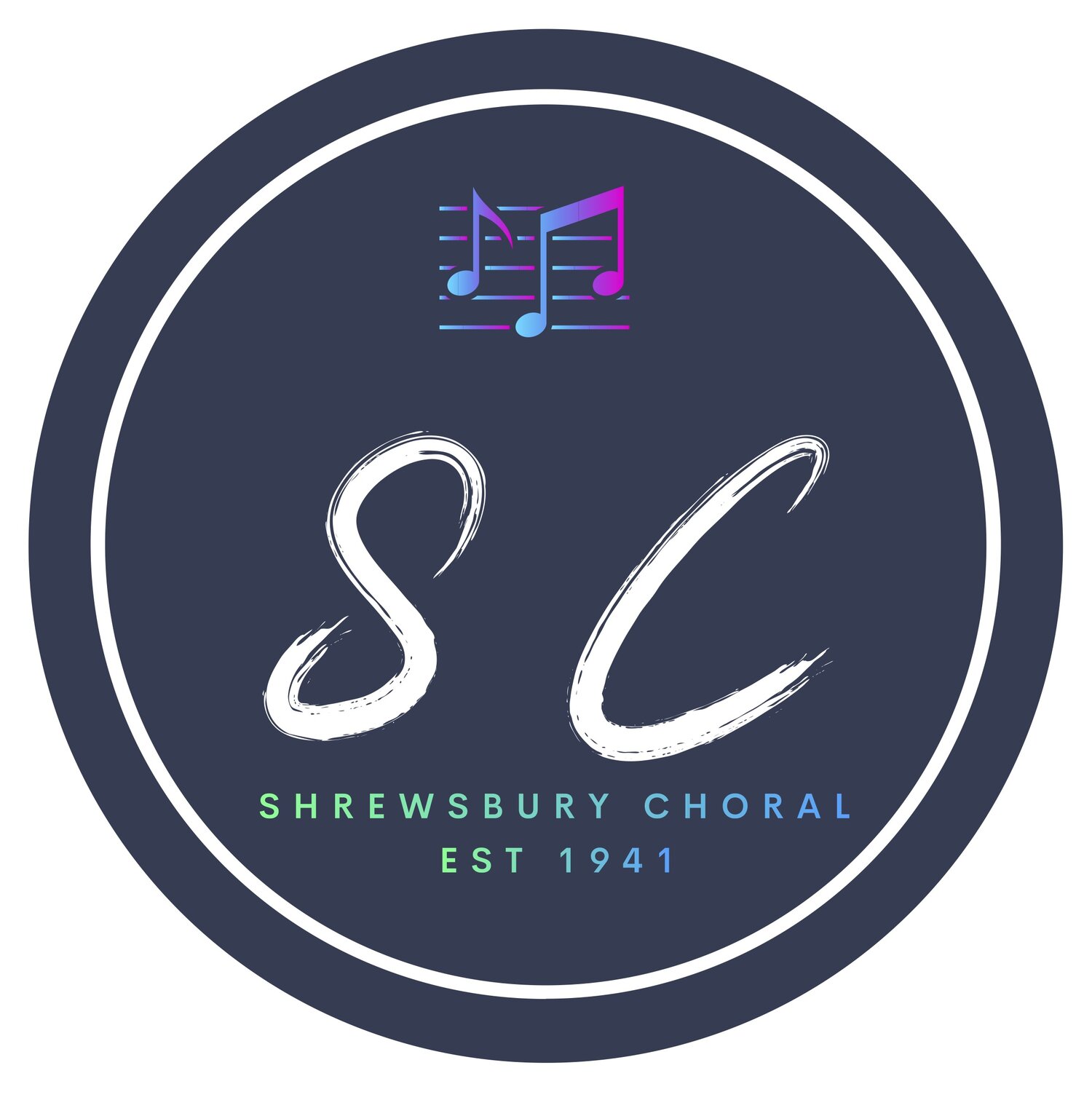Our History and Heritage
Shrewsbury Choral Society - Wartime Years
The Shrewsbury Choral Society was re-formed early in 1941 as an effort to revive the practice of choral singing and also to provide an antidote for war-nerves during a period of great national stress and it is 1941 that we commemorate in our logo. Whether we count 1941 or the earlier dates as the birth of the Choral Society we are the longest-running choir in Shrewsbury.
A performance of Handel’s Messiah had been given in the Alington Hall at Shrewsbury School in December 1940. While this performance was not an outstanding musical success, it was clear that there was an appetite and enthusiasm for choral singing so Frederick Morris, the conductor of the Shrewsbury Orchestral Society and musical director of the Shrewsbury Operatic Society was approached and invited to lead the new venture. Despite the lack of younger voices (especially men’s voices) owing to the war effort, he was able to form a fairly well-balanced choir.
The first performance, of Messiah, was given in St Chad’s Church accompanied by string orchestra, piano and organ and a second performance of Messiah was given in the Parish Church at Shawbury. The profits from these performances, £46, were passed to the Mayor of Shrewsbury for his branch of the Red Cross and St John Fund.
On 8th December 1942 the society performed Mendelssohn’s Elijah giving a performance regarded by Arthur Cramer, the guest soloist, as rarely bettered. Guests of honour at this performance were Mr and Mrs F.G. Roland. Mr Roland had been the conductor of the Shrewsbury Philharmonic Society and had been responsible for maintaining high standards of choral singing in Shrewsbury in the decade after the First World War. Thus a link was forged between the modern society and its predecessor.
On 23rd May 1943 the Society performed the full trilogy of Coleridge-Taylor’s Hiawatha in the Alington Hall to a sell-out audience. The press reports for the concert said “The Chorus, orchestra, with three accomplished soloists, are to be congratulated upon their lovely and distinguished appreciation of this work.” The society went on to perform Messiah in its entirety in 1943 becoming an annual event well into the 1950s. The second concert of the ‘43-44 season saw the choir tackling Elgar’s King Olaf. In ‘44-45 the Society revisited Haydn’s Creation. Celebrating the end of the Second World War, the Society performed Elgar’s Banner of St George and Mendelssohn’s Hymn of Praise. The second concert of the season was the Society’s biggest financial loss to date as it seems there was no appetite for Handel’s Judas Maccabeus in place of the perennially popular Messiah with 250 seats being unoccupied. The press reports said “ … a great disappointment to see so many empty seats. Let us hope Shrewsbury is not returning to pre-war apathy where music of this type is concerned… chorus doing good work.”
